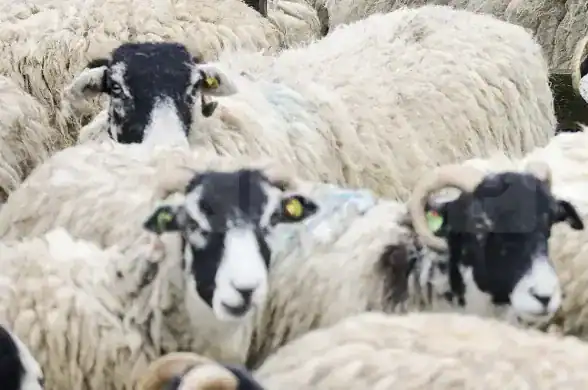The UK’s Chief Veterinary Officer, Christine Middlemiss, has confirmed the country’s first-ever case of avian-origin influenza (H5N1) in a sheep, sparking heightened surveillance and renewed warnings to livestock keepers.
The infected sheep was discovered on a Yorkshire farm where avian flu had previously been found in captive birds. Detected through routine milk sampling, the unprecedented case was identified by the Animal and Plant Health Agency (APHA) as part of ongoing surveillance to monitor the spread of the virus across species.
The sheep was humanely culled to prevent further transmission, and extensive testing of the remaining flock has so far shown no signs of additional infections—suggesting the incident is an isolated case.
Low Risk, But Heightened Vigilance
Chief Veterinary Officer Middlemiss said:
“The risk to livestock remains low, but I urge all animal owners to ensure scrupulous cleanliness is in place and to report any signs of infection to the APHA immediately.”
Strict biosecurity measures have been enforced on the affected premises, and the Department for Environment, Food & Rural Affairs (Defra) has expanded its surveillance strategy to include all farms with previous avian flu outbreaks.
Public Health Reassurances
The UK Health Security Agency (UKHSA) has emphasised that H5N1, while a cause for concern in birds, poses a “very low” risk to humans. Dr Meera Chand, UKHSA’s Emerging Infection Lead, explained:
“There is no evidence that the avian influenza viruses currently circulating can spread easily between people.”
The Food Standards Agency (FSA) also reiterated that poultry and eggs remain safe to eat when cooked properly.
“Bird flu poses a very low food safety risk to UK consumers,” said FSA Chief Scientific Adviser Robin May.
Transparency and Global Standards
In line with international obligations, the UK has reported the incident to the World Organisation for Animal Health (WOAH) and the World Health Organisation (WHO), reinforcing its role as a global leader in disease surveillance.
Biosecurity and Livestock Advice
Livestock owners are being urged to closely monitor animals for symptoms such as respiratory issues or drops in milk production. They should follow updated guidance published on gov.uk and contact the APHA immediately to report suspected cases:
Failure to report is a criminal offence.
A Global Challenge
Though this is the UK’s first sheep case, H5N1 has crossed into mammals before—most notably in dairy cows in the United States. The virus’s ability to jump species remains a concern, prompting some UK farmers on social media to call for tighter biosecurity controls and stricter import checks, although Defra has yet to respond.
Veterinary authorities warn that while biosecurity is effective, understanding how the virus jumped from birds to a sheep will be crucial in preventing future cross-species transmission.
Conclusion
This historic case underscores the importance of vigilance in animal health management. The UK’s swift and transparent response, alongside its commitment to international cooperation, offers reassurance—but also highlights the need for continued attention to the evolving nature of avian influenza.
Livestock keepers and the public can find the latest updates and advice at gov.uk.







































